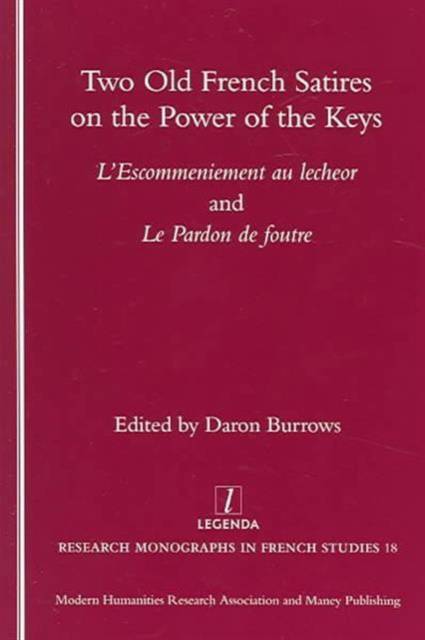
- Afhalen na 1 uur in een winkel met voorraad
- Gratis thuislevering in België vanaf € 30
- Ruim aanbod met 7 miljoen producten
- Afhalen na 1 uur in een winkel met voorraad
- Gratis thuislevering in België vanaf € 30
- Ruim aanbod met 7 miljoen producten
Zoeken
Omschrijving
The thirteenth-century French comic dits of Les Escommeniemanz au lecheor and Le Pardon de foutre are two of the earliest vernacular texts to articulate anticlerical satire against the abuse of excommunications and indulgences. In Les Escommeniemanz, a relentless series of excommunications is promulgated against a broad range of social groups accused of activities ranging from the illegal and the immoral, through the socially disruptive, to the profoundly nonsensical and obscene, while in Le Pardon, a cardinal freshly arrived from Rome offers indulgences to groups whose shocking alleged sexual incontinence appears scarcely to merit pardon. Burrows' new edition of two hitherto unedited poems so important to the understanding of lay attitudes towards ecclesiastical authority in thirteenth-century France is complemented by an English translation and a detailed commentary on the texts' literary, linguistic, codicological, ideological, and socio-historical content and context.
Specificaties
Betrokkenen
- Auteur(s):
- Uitgeverij:
Inhoud
- Aantal bladzijden:
- 160
- Taal:
- Engels
- Reeks:
- Reeksnummer:
- nr. 18
Eigenschappen
- Productcode (EAN):
- 9781904713098
- Verschijningsdatum:
- 1/12/2004
- Uitvoering:
- Paperback
- Formaat:
- Trade paperback (VS)
- Afmetingen:
- 144 mm x 215 mm
- Gewicht:
- 217 g

Alleen bij Standaard Boekhandel
+ 129 punten op je klantenkaart van Standaard Boekhandel
Beoordelingen
We publiceren alleen reviews die voldoen aan de voorwaarden voor reviews. Bekijk onze voorwaarden voor reviews.











